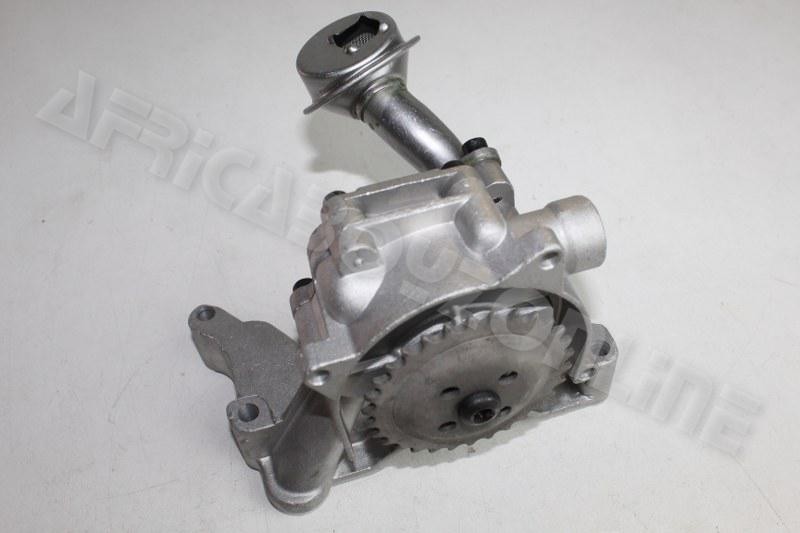Optimize fuel efficiency with a top-tier clp engine.
Optimize fuel efficiency with a top-tier clp engine.
Blog Article
Exactly How a Clp Engine Can Enhance Effectiveness in Different Industries
The development of CLP engines notes a significant change in operational performance throughout different markets, driven by their ability to enhance gas intake and reduce downtime. Industries such as production and logistics stand to gain substantially from their durable style and regular power result, which assure to enhance procedures and enhance efficiency. As companies progressively prioritize sustainability together with effectiveness, the duty of CLP engines ends up being even more essential. What stays to be seen is just how these innovations will shape the future landscape of commercial procedures and their effect on broader financial fads (clp engine).
Introduction of CLP Engines
CLP engines, or Constant Fluid Propellant engines, represent a considerable innovation in propulsion technology, specifically for room applications. These engines make use of a continuous feed system that allows for the continual expulsion of propellant, leading to improved efficiency and performance compared to traditional strong or hybrid propulsion systems. By preserving a consistent circulation of fluid propellant, CLP engines can accomplish much more exact thrust control, which is vital for maneuvering spacecraft in various objective situations.
The layout of CLP engines integrates advanced products and innovative gas management systems. clp engine. This causes lowered weight and enhanced integrity, vital variables for long-duration area goals. The continual operation minimizes the risk of combustion instability, a typical difficulty in conventional rocket engines.

Benefits in Production
The production of Constant Liquid Propellant (CLP) engines provides a number of notable advantages that boost both performance and cost-effectiveness. Among the main benefits is the streamlined manufacturing procedure, which minimizes the complexity connected with typical propulsion systems. By utilizing liquid propellant, makers can accomplish better accuracy in engine performance, leading to maximized power output and lowered waste.
Furthermore, CLP engines help with a greater degree of modularity, allowing for less complicated combination right into numerous manufacturing lines. This flexibility can considerably lower preparations and improve overall functional versatility. Making use of CLP innovation also often tends to minimize the requirement for considerable upkeep as a result of less relocating parts, which converts into decreased downtime and functional prices.

Applications in Logistics
Leveraging Continual Fluid Propellant (CLP) engines in logistics offers substantial advantages in operational performance and reliability. These engines give a durable service for various transport requirements, making it possible for the seamless movement of items across substantial ranges. The inherent style of i loved this CLP engines enables consistent power outcome, which translates right into smoother and more foreseeable transportation routines.
Among the key applications of CLP engines in logistics remains in heavy-duty products transport, where they can drive both ground and aerial automobiles. Their capacity to maintain high efficiency under varying load problems makes certain that distribution timelines are satisfied, therefore enhancing customer fulfillment. Furthermore, CLP engines can be integrated right into automated logistics systems, promoting real-time tracking and enhancing path planning.
In addition, the toughness of CLP engines lowers upkeep downtime, enabling logistics firms to optimize their functional abilities. This is specifically helpful in warehousing operations, where effectiveness in taking care of and moving goods is vital. As logistics proceeds to develop, the combination of CLP engines stands for a forward-thinking technique that not just boosts efficiency but likewise supports the sector's expanding needs for dependability and speed.
Influence On Energy Efficiency
How do Continuous Fluid Propellant (CLP) engines boost power performance in transportation? CLP engines make use of a consistent circulation of fluid fuel, enhancing combustion procedures and preserving a secure drive result. This design decreases energy losses connected with traditional burning engines, where gas distribution can differ and cause ineffectiveness.
The continual procedure of CLP engines enables an extra efficient thermal cycle, resulting in higher particular impulse contrasted to traditional engines. clp engine. This translates to reduced fuel consumption for the same amount of work done, significantly reducing operational costs a fantastic read across numerous transportation sectors, including aviation and maritime markets
Additionally, the capability of CLP engines to keep ideal efficiency under varying load conditions lowers the demand for regular acceleration and deceleration, further improving gas efficiency. Improved power effectiveness not only adds to cost savings but likewise results in decrease greenhouse gas exhausts, straightening with global sustainability objectives.
Future Trends and Innovations
Emerging advancements in Continual Liquid Propellant (CLP) More Info engine modern technology assurance to revolutionize the landscape of transport efficiency and sustainability. As industries pivot toward greener alternatives, CLP engines stand at the center, incorporating ingenious materials and style approaches that enhance performance while minimizing environmental influence.
One of one of the most appealing patterns is the adoption of hybrid systems that combine CLP engines with renewable resource sources. This synergy can maximize fuel consumption and decrease emissions, aligning with international sustainability objectives. Advancements in computational liquid dynamics (CFD) are assisting in the layout of even more aerodynamically efficient engines, leading to reduced drag and boosted gas effectiveness.
Moreover, the development of smart surveillance systems is readied to enhance functional performances. These systems leverage information analytics and IoT innovation to maximize engine efficiency in real-time, making certain that the engines operate within their most reliable specifications.
As research remains to discover different propellant formulations-- such as biofuels and artificial gas-- the future of CLP engines looks encouraging. By taking advantage of these innovations, markets can not just boost their efficiency but likewise contribute considerably to a cleaner, extra sustainable future in transport.
Final Thought
Finally, CLP engines represent a significant innovation in performance across several sectors. Their capability to maximize gas consumption and lower functional expenses, incorporated with a continual feed system, improves power output and functional reliability. The integration of sophisticated products and fewer relocating components decreases upkeep needs, while positioning with sustainability objectives settings CLP engines as a pivotal modern technology for the future. Proceeded development in this field promises additional enhancements in performance and ecological efficiency.
Report this page